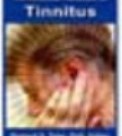Previous Post:- Causes and evaluation of sudden sensorineural hearing loss
Sudden sensorineural hearing loss is an otologic emergency and challenge to otolaryngologist.
Thorough history, physical examination, appropriate laboratory and radiologic investigations including gadolinium enhanced MRI, and Audiometry tests should be carried out to find out known cause such as: – Infection (bacterial-meningitis/viral-mumps, herpes), Tumor, Trauma, Acoustic trauma, Ototoxic drugs (amino glycoside antibiotics), and Systemic diseases (hypothyroidism, Diabetes mellitus).
If an etiology is apparent, appropriate treatment may be initiated such as antibiotics for infection, withdrawal of ototoxic drugs.
In most cases cause remains unknown (idiopathic) thus existent treatment aims at improving blood flow.
Optimal treatment is still under research and controversies exist but treatment versus non-treatment and early initiation of treatment is proved to give better result.
1. Antivirals– Because of common association with viral infection antiviral medication is prescribed by some clinicians.
2. Steroids- Most widely accepted treatment option studies shows improved recovery rate with use of steroid. It can be given orally, or by injection, or Trans tympanic by means of middle ear instillation or round window micro catheter which is more effective than oral administration.
3. Vasodilator to improve blood flow or oxygenation to inner ear. Clinical studies shows mixed results. Carbogen inhalation, Papaverin, Histamine, Nicotin and Niacin have been used.
4. Immunosuppressant- Wang et al etanercept in experimental animal study improves hearing result.
5. Ginkgo Biloba-
6. General measures-
- Low salt diet,
- Avoid caffeine, nicotine and alcohol,
- Avoid noise exposure,
- Avoid heavy physical activity,
- Well balanced diet,
- Alpha-lipoic Acid, Antioxidants, Co-enzyme Q10.
- Zinc, Magnesium, Calcium,
- Vitamin D, B -Complex, Vitamin C
Prognosis of sudden sensorineural hearing loss-
50-65% spontaneous recovery within first 4-6 weeks.
Symptoms of ear blockage or deceased hearing is often considered as wax or middle ear infection and person delays visit to an otolaryngologist. A delay in initiating treatment may decrease the chances of recovery.
Negative factors in prognosis-
- Age more than 65 years or less than 15 years
- Severe hearing loss specially affecting high frequency
- Hearing loss in opposite ear
- Associated vertigo
- Elevated ESR
Treatment protocol should be carefully applied and potentially harmful treatment should be avoided. A thorough evaluation to be done on emergency basis and all efforts should be taken to find out known causes. Steroids are most widely accepted treatment options.
Sudden Sensorineural hearing loss–
- It should be regarded as an otologic emergency.
- Patient should be evaluated by otolaryngologist.
- A thorough history, physical examination, appropriate laboratory and radiologic investigations including gadolinium enhanced MRI, and Audiometry tests should be carried out to find out known cause.
- A tapering course of prednisolone/methyle prednisone is prescribed.
- Antiviral medication may be considered.

You must be logged in to post a comment.